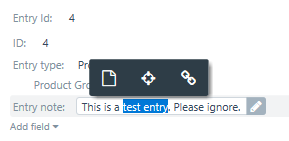From time to time I have to update numbers of webpages, where the only change is that a single law or ministry name has changed (and the accompanying abbreviations).
Usually the notification of this being the case here in the Austria is as a set of "Anpassungsbestimmungen" in an amendment to a law or regulation, that also affects all other laws using that wording.
E.g. Polizeiliches Staatsschutzgesetz >>> Staatsschutz- und Nachrichtendienst-Gesetz (or PStSG >>> SNG)
I often receive briefing notes to translate that might use the names of the old law or Ministry name and want to find a way in QA tools to flag this kind of an issue (historic procedures would of course still use the old law...).
I had wondered whether I need an additional field in the TermEntry in MultiTerm to flag that the law is obsolete which is looked at in the QA Tools or whether I can use QA tools in another way to flag this kind of issue.
Does anyone have any bright/inspired ideas how to handle this? Thanks in advance!


 Translate
Translate




